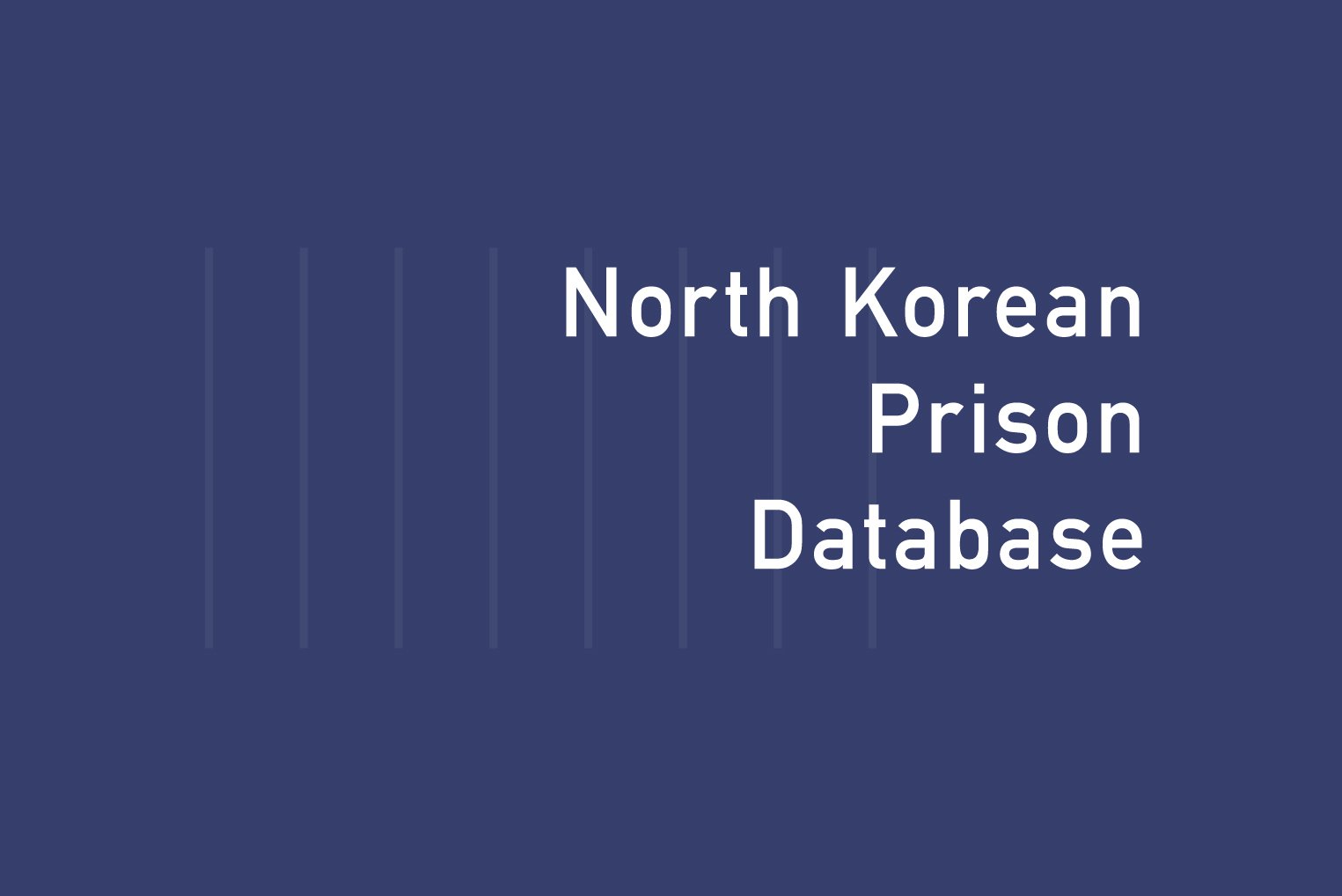North Korean Prison Database
Summary
Our work focuses on three objectives, namely:Collection of information and evidence. We interview victims, witnesses, and perpetrators to document and preserve information and evidence to support factual and legal research and analysis on three pillars relevant to the commission of violations and crimes in DPRK penal system: 1) The crime base, namely violations such as torture, sexual and gender-based violence, and extrajudicial killings; 2) The contextual elements of crimes, namely the existence of a widespread or systematic attack directed against any civilian population, pursuant to or in furtherance of DPRK state policy, and; 3) Perpetrator linkage to the underlying acts, including perpetrators as well as those otherwise responsible due to their roles. We safeguard the well-being of survivors, avoid further traumatisation, and work closely with psychosocial providers who offer medical and psychological support.Policy Advocacy. We deliver campaigns at regional and international fora to advocate for policy development for accountability for the DPRK. This work includes detailed research to inform our recommendations and engaging with a cross section of stakeholders, including survivors.Targeted human rights sanctions. With this method we use information and evidence we have documented to build cases and submit sanctions recommendations for individuals and entities responsible for human rights abuses in the DPRK penal system to multiple global jurisdictions.
Background
The DPRK penal system is under the effective control of the Workers’ Party of Korea (WPK). Subject to absolute WPK control, the penal system functions as a distinctly political apparatus. Its purpose is to isolate persons from society whose behaviour conflicts with upholding the singular authority of the Supreme Leader, Kim Jong Un. Detainees are re-educated through forced labour, ideological instruction, and punitive brutality with the purpose of compelling unquestioning obedience and loyalty to the Supreme Leader, both while the individuals are in detention and after they are released. The penal system detains vast numbers of citizens who have no formal convictions, have experienced no due process, and have committed no crimes, alongside persons who have committed common crimes, including theft and assault. The effective coordination of the penal system is maintained by the WPK through its mechanisms of command, control, and ideological instruction over all state entities and agents. Ultimate responsibility rests with the WPK General Secretary, Kim Jong Un.Database
Launched in March 2022, the North Korean Prison Database features detailed information on detainees, perpetrators, human rights violations, and penal facilities within the DPRK. As of the latest update, there are records for 1,156 detainees, 919 perpetrators, 7,301 human rights violations, and 206 penal facilities. The database includes various filters for detailed searches, such as detainee demographics, facility types, and violation specifics. For more detailed information, please visit the North Korean Prison Database directly. Requests for specific, unlisted information is considered on a case-by-case basis.Visual Investigations
Access to the DPRK and its penal system is forbidden. To better understand and situate the experiences of victims, we use digital modelling, memory-based diagrams, survivor testimony, and satellite imagery to model the internal architectures of penal facilities. Often, this is the first time anyone outside of the DPRK will have seen inside these facilities. Sexual & Gender-based Violence
We adopt an inclusive, survivor-centred, and trauma informed human rights-based approach in our documentation of sexual and gender-based violence (SGBV) in the penal system. To fully address the challenges related to documenting sexual and gender-based violence in the unique context of the DPRK penal system, we collaborate with organisations led by exiled North Korean women and activists, organisations led by exiled North Korean men and activists, psychosocial service providers, South Korean civil society organisations, and international civil society to establish and communicate gender-sensitive, trauma-informed, and survivor-centred documentation practices.We intend our work to serve as a starting point for continued reflections on documentation practices for individuals and organisations investigating sexual and gender-based violence and other violations in the DPRK. It seeks to support investigators in navigating global best practices and in considering contextually specific challenges that should be considered when engaging survivors.North Korean Religious Freedom Database
The Workers’ Party of Korea is responsible for the absolute denial of the right to freedom of thought, conscience, and religion in the DPRK. The penal system serves as its primary tool of enforcement. Tens of thousands of persons with religious identities have been deprived of their liberty, held in overcrowded cells, denied a fair trial, and subjected to violations including torture, sexual violence, forced labour, and extrajudicial execution. We have independently documented 195 perpetrators responsible for over 1,000 violations of international law involving 517 victims in 127 locations. Our information can be accessed and downloaded at the North Korean Religious Freedom Database.Media
CNN - Torture, forced abortions and insects for food: Life inside North Korean jails, says this NGOBBC - Beatings and forced abortions: Life in a North Korea prisonAl Jazeera - Group identifies 600 alleged North Korean rights abusersDe Telegraaf - Martelingen hongersnood en seksueel geweld in gevangenissen Noord KoreaYonhap - 북한 구금시설서 임신 8개월 강제낙태…극단적 굶기기 고문도




